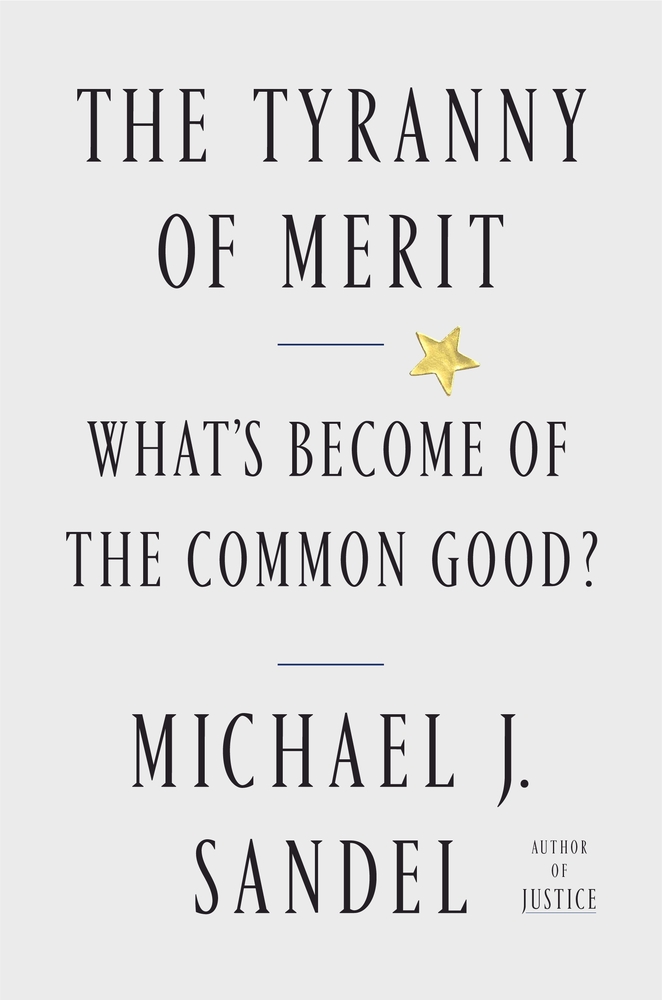Omaha, NE. As an academic trend in political philosophy, communitarianism had its heyday in the 80s and 90s. It found expression in the work of prominent philosophers such as Alasdair MacIntyre, Charles Taylor, and Michael Sandel, though none of them were very fond of the label. For the most part, communitarianism was a movement on the left. It sought to correct the overly individualistic tendencies of John Rawls and other liberal egalitarian political philosophers, while maintaining many of the same left-wing political goals.
We see this, for instance, in Sandel’s critique of what he calls Rawls’s “unencumbered” conception of the self, which prizes individual autonomy and does not recognize the moral significance of unchosen ties to family, neighbors, fellow citizens, place, and traditions. According to Rawls, “the accidents of natural endowment and the contingencies of social circumstance” are “arbitrary from a moral point of view” and should not be allowed to determine social and economic advantage. Therefore, in order to come up with fair terms of social cooperation, we need to think of ourselves in the hypothetical situation of the “original position,” where we adopt a “veil of ignorance” such that we do not know the particularities of our social situation, our natural assets, and our conception of the good for human life.
One of the principles to which Rawls thinks we should agree is what he calls “the difference principle,” which requires equal distribution of economic benefits unless it can be shown that an unequal distribution is more beneficial to the least well off. Sandel points out, however, that this principle appears to be in conflict with Rawls’s account of the unencumbered self. He writes: “What the difference principle requires, but cannot provide, is some way of identifying those among whom the assets I bear are properly regarded as common, some way of seeing ourselves as mutually indebted and morally engaged to begin with.” In short, the difference principle requires a morally and socially encumbered self. It requires some basis for solidarity.
Communitarianism is now often considered passé in academic political philosophy, where a left-wing cosmopolitan outlook is dominant. However, outside of the academy, in our actual political life, it is making a major comeback in our populist age, but this has been more on the right than on the left, and the concern is not only with excessive individualism, but also with the deracinating tendencies of globalism that give rise to and find rationalization in the cosmopolitan outlook.
We see variants of this right-wing communitarianism expressed in Donald Trump’s rhetoric of national solidarity and Boris Johnson’s appeal to a one-nation conservatism, both of which repudiate the libertarianism of Reagan and Thatcher along with cosmopolitanism. (Whether it has been fully realized with either leader is another matter.) We also see it in conservative thought leaders who are seeking to reshape the Republican Party, such as Oren Cass and those connected with his new think tank American Compass, as well as Missouri Senator Josh Hawley with his defense of a “politics of home” and Florida Senator Marco Rubio with his defense of “common good capitalism.”
While a certain brand of communitarianism seems to be thriving on the right, on the left side of the political spectrum it has been more dormant (there were elements of it in Senator Bernie Sanders’s unsuccessful presidential campaign). However, we now have a new book from Michael Sandel responding to our populist moment.
Sandel’s book gives voice to a common worry on the left that our populist age poses a threat to democracy, especially insofar as it expresses xenophobia and gives rise to demagogic and autocratic rulers. Without denying that there are some legitimate concerns here, it needs to be said that these claims often function as bogeymen used to write off what are legitimate populist grievances. Populism can in fact be seen as being precisely a reassertion of democracy against the anti-democratic tendencies of managerial, technocratic elites, which is something Christopher Lasch discussed compellingly prior to our current populist resurgence in his 1996 book The Revolt of the Elites and the Betrayal of Democracy. And so “populism” often simply refers to forms of democracy that elites don’t like. To his credit, Sandel is concerned to acknowledge that there are legitimate grievances expressed in the current populist uprising (some of his strongest criticisms are directed at the Obama administration), and he seeks to offer solutions to them.
According to Sandel, these legitimate grievances are rooted in what he calls “the tyranny of merit,” which he also describes as a “meritocracy” that has lost sight of the common good due to “meritocratic hubris.” By meritocratic hubris Sandel means the tendency of the “winners” in the global economy to take too much pride in their success and to forget the good fortune that helped them get to where they are. They smugly believe that they fully deserve their fate, and also that the “losers” at the bottom of the economic and social status ladder are deserving of theirs.
Without denying that there is a legitimate role for considerations of merit, Sandel contends that “a lively sense of the contingency of our lot”—where we think “there, but for the grace of God, or the accident of fortune, go I”—conduces to a certain salutary humility and sense of solidarity. However, “a perfect meritocracy would banish all sense of gift or grace,” and thereby it “diminishes our capacity to see ourselves as sharing a common fate” with our fellow citizens; that is, it causes us to lose sight of the common good.
The meritocratic order leads to what Sandel calls a “politics of humiliation,” where those who struggle to make ends meet feel resentment toward “elites” for looking down on them and perhaps feel demoralized regarding their own abilities to succeed. In short, Sandel thinks that there is a “volatile brew of anger and resentment that fuels populist protest.”
In place of the politics of humiliation, Sandel wants a “politics of the common good” that can respond to the legitimate grievances that fuel the populist protest. This is a politics that would have to grapple with income inequality and meritocratic hubris, but it would also have to recover a sense of the dignity of work— by giving proper recognition to the contributions of people’s work to the common good—and accord a place for patriotism or solidarity with fellow citizens.
The last two of these points—about the dignity of work and patriotism—it must be said have had more of a place in conservative than progressive politics in recent years. Patriotism in particular is looked at with suspicion by those who inhabit the cosmopolitan outlook of the left. It is also noteworthy that the major politician who has critiqued what Sandel calls meritocratic hubris most forcefully and articulately is in fact a Republican, namely, Senator Josh Hawley.
In an article for Christianity Today titled “The Age of Pelagius,” Hawley argues that the spirit of the Pelagian heresy of the 5th century—which maintained that individuals could achieve salvation through their own efforts—is still very much present with us today. Indeed, it has become dominant in the form of a particular philosophy of freedom (aspects of which Pelagius himself would not have endorsed): “It is a philosophy of liberation from family and tradition, of escape from God and community, a philosophy of self-creation and unrestricted, unfettered free choice.” Hawley notes that for all the talk about individual freedom, this philosophy of freedom has in fact made American society more hierarchical and elitist; indeed, he sees it as a philosophy that validates the rich and powerful by claiming that their privileged position comes from their meritorious achievements.
“The truth is,” Hawley says, “the people at the top of our society have built a culture and an economy that work mainly for themselves. Our cultural elites look down on the plain virtues of patriotism and self-sacrifice, things like humility and faithfulness. They celebrate instead self-promotion, self-discovery, self-aggrandizement. . . . They assume their value preferences should prevail, while denigrating the loves and loyalties of Middle America. That’s the nature of elitism.” Ultimately, Hawley believes that this hierarchy and elitism threaten our common liberty as ordinary hard-working people lose a sense of self-respect, of belonging, and of having a voice in shaping our national and regional ways of life.
The similarities between the powerful—and to my mind convincing—arguments of Sandel and Hawley are remarkable. Indeed, Hawley also affirms the importance of having, as Sandel puts it, “a lively sense of the contingency of our lot,” as when Hawley endorses the view of St. Augustine against the meritocratic hubris of Pelagius. This Augustinian view maintains: “We are fragile. We are fallible. We suffer weakness and need. And we all stand in need of God’s grace.”
Given the similarities between their views, the question arises: what exactly differentiates left- and right-communitarianism? Maybe we should say that the traditional divide between left and right does not matter as much anymore, as our populist moment allows us to find new common ground. Perhaps we should say that the more important divide now is between what Chris Arnade terms the front-row kids and back-row kids or what David Goodhart calls the cosmopolitan “anywheres” and patriotic “somewheres.” In many respects, I think this is right, though it is also true that the “somewheres” find more representation on the political right today, and the “anywheres” find more representation on the political left. But to the extent there exists a left-communitarianism of the sort that Sandel endorses, I think we can discern some important general differences between left- and right-communitarianism.
To begin with, there is a difference over the issue of centralization of political power. Left-communitarians—and here we can think of someone like Bernie Sanders—are generally less troubled by centralizing political power than right-communitarians, who generally favor decentralization in political and economic matters and affirm the principle of subsidiarity as key to what Hawley calls our “common liberty” in being able to participate in the project of self-government. Sandel himself has advocated for political decentralization in previous work, though he still maintains a large role for the federal government in being the primary mechanism for pursuing egalitarian redistributive policies.
This points to another important difference: a main reason why left-communitarians are less troubled by centralization is because they are more troubled by economic inequality than are right-communitarians. Sandel gives the impression that he thinks economic inequality as such is morally problematic, as we see in the way that he accepts the economic egalitarian premise of Rawls’s difference principle while critiquing his autonomy-centered outlook. By contrast, right-communitarians will not endorse economic egalitarianism. They will regard extreme economic inequality as problematic insofar as it undermines a sense of shared belonging and democratic self-government, where democracy is replaced by plutocracy. However, economic inequality as such is not morally problematic. For instance, it does not matter if two rich people are unequally rich. What matters is that everyone has enough to live a good life, and this concern should flow from a moral egalitarianism that affirms that every human life has an equal inherent dignity.
Sandel does not endorse equality of outcome; rather he endorses “equality of condition,” which “enables those who do not achieve great wealth or prestigious positions to live lives of decency and dignity—developing and exercising their abilities to work that wins social esteem, sharing in a widely diffused culture of learning, and deliberating with their fellow citizens about public affairs.” This is something that both left- and right-communitarians should endorse. But a difference emerges in the fact that Sandel places much greater emphasis on economic matters than cultural matters. Even where he does discuss cultural matters the focus is on according social esteem for work that contributes to the common good, and also with finding ways of belonging that can enable us to support extensive redistributive policies.
In contrast to Sandel, we saw that Hawley places strong emphasis on cultural matters, including the importance of family, faith, tradition, and the bonds of local community, from which the Pelagian philosophy of freedom has sought liberation. He speaks of how our cultural elites not only look down on those who lack their economic and educational achievements—which Sandel recognizes—but they also denigrate “the loves and loyalties of Middle America.” They look down on “the plain virtues of patriotism and self-sacrifice, things like humility and faithfulness,” and instead promote self-creation and unfettered choice. This cultural disdain, especially for those who affirm the traditional values associated with our Judeo-Christian cultural inheritance, is off the map in Sandel’s book.
While Sandel rightly critiques the philosophy of unfettered freedom in economic matters, he does not critique the way in which it has been relentlessly promoted in the general culture by cultural elites through the media, the entertainment industry, the educational system, and the courts, and which has also been greatly detrimental to the common good. For instance, Sandel does not touch—with any criticism—the permissive liberal sexual ethic that has eroded the key cultural institution of the family and has led to increased loneliness and social disfunction. Sandel also does not take issue with the abortion regime that is required by the liberal sexual ethic and is defended on the left increasingly with a kind of religious fervor, but which constitutes an affront to the claims of our equal human dignity. Left-communitarianism has largely made its peace with the sexual revolution, and so it tends to focus on civil society and the state and not the family, whereas right-communitarianism regards the health of the family and the recognition of the sanctity of human life as key to a well-functioning society.
It is worth noting that Sandel, as a world-renowned Harvard professor, is himself an upper-echelon elite. And it is also worth noting that his critique of meritocracy is not likely to cost him any social status among economic and cultural elites, since it is in service of redistributive policies that many of them largely agree with anyways. What could really cost him something is if he came out against the cultural liberalism of the elite, especially regarding sexual matters and abortion. I don’t note these things to cast aspersions on Sandel for lacking the courage of his convictions (he appears to lack the relevant convictions), but only to highlight how difficult it can be to go against elite consensus on cultural matters when one is among (or aspiring to be among) the elite. Nevertheless, a proper critique of the philosophy of “unencumbered” freedom and a proper affirmation of an ethic of giftedness—where we see every human life as a precious gift—does indeed require a populism that stands athwart the cultural liberalism of the elite. So, while I think there is much to admire and benefit from in Sandel’s forceful critique of liberal elitism, the main complaint I want to lodge is that it does not go far enough.













“as a world-renowned Harvard professor, is himself an upper-echelon elite”
Well, he’s upper-echelon, but is he elite? Has he accomplished anything that has objectively advanced the world forward? Because to me the greatest pushback onec can make against our “meritocracy” is that those at the top have pretty much got everything wrong for the last several decades, when it comes to globalization, foreign adventurism, etc. If they’re “experts” or “elite” then where is the proof? Other than a piece of paper from the “right” institutions?
“a main reason why left-communitarians are less troubled by centralization is because they are more troubled by economic inequality than are right-communitarians.”
Are they? Where is the evidence? Small towns across America are desolate wastelands, thanks to the centralization of political, and by extension economic, power, that they push so eagerly.
Insightful description of communitarian issues that are at the heart of our social struggles. Perfect for FPR! How would you make communal life more central and relevant?
Comments are closed.